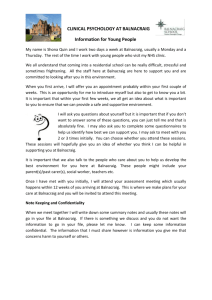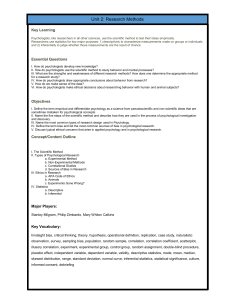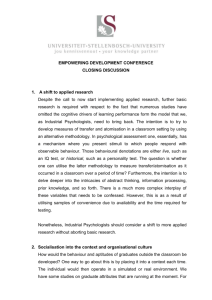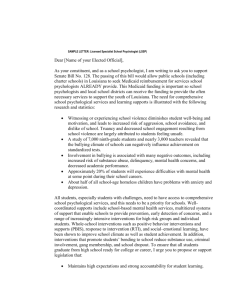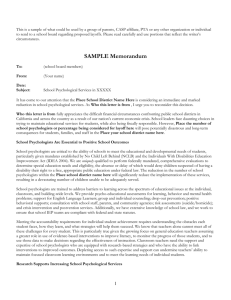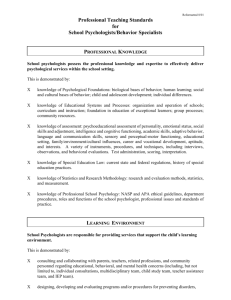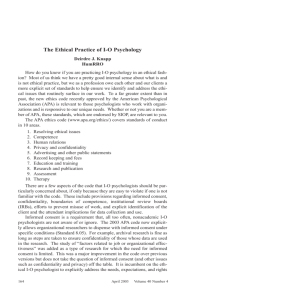Confidentiality
advertisement
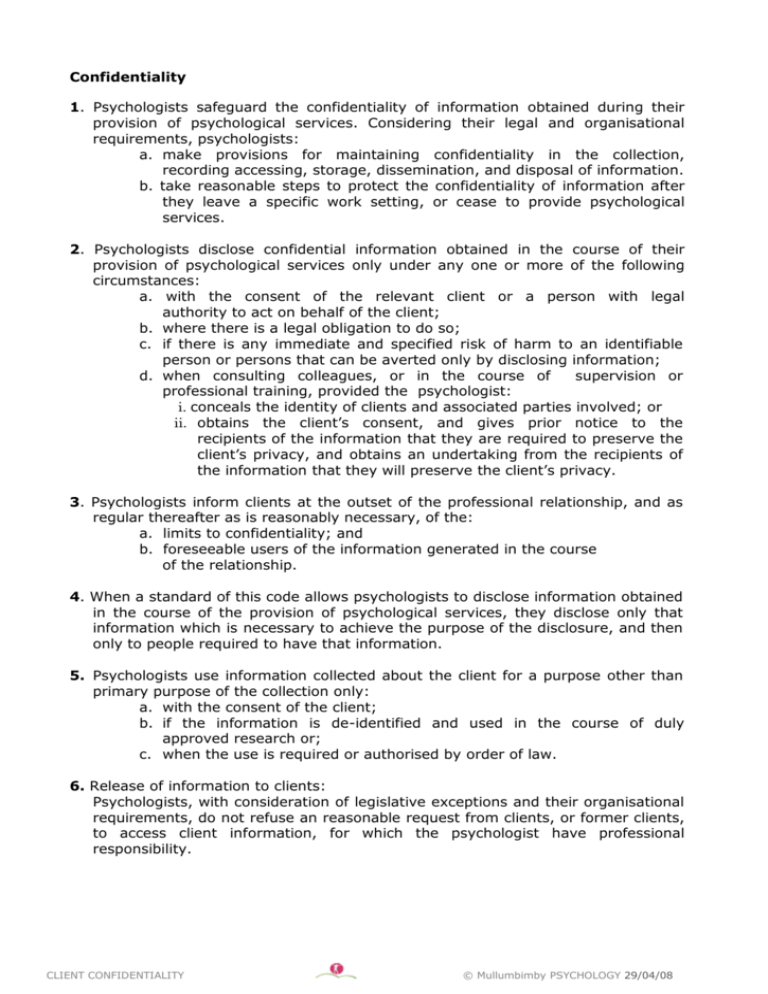
Confidentiality 1. Psychologists safeguard the confidentiality of information obtained during their provision of psychological services. Considering their legal and organisational requirements, psychologists: a. make provisions for maintaining confidentiality in the collection, recording accessing, storage, dissemination, and disposal of information. b. take reasonable steps to protect the confidentiality of information after they leave a specific work setting, or cease to provide psychological services. 2. Psychologists disclose confidential information obtained in the course of their provision of psychological services only under any one or more of the following circumstances: a. with the consent of the relevant client or a person with legal authority to act on behalf of the client; b. where there is a legal obligation to do so; c. if there is any immediate and specified risk of harm to an identifiable person or persons that can be averted only by disclosing information; d. when consulting colleagues, or in the course of supervision or professional training, provided the psychologist: i. conceals the identity of clients and associated parties involved; or ii. obtains the client’s consent, and gives prior notice to the recipients of the information that they are required to preserve the client’s privacy, and obtains an undertaking from the recipients of the information that they will preserve the client’s privacy. 3. Psychologists inform clients at the outset of the professional relationship, and as regular thereafter as is reasonably necessary, of the: a. limits to confidentiality; and b. foreseeable users of the information generated in the course of the relationship. 4. When a standard of this code allows psychologists to disclose information obtained in the course of the provision of psychological services, they disclose only that information which is necessary to achieve the purpose of the disclosure, and then only to people required to have that information. 5. Psychologists use information collected about the client for a purpose other than primary purpose of the collection only: a. with the consent of the client; b. if the information is de-identified and used in the course of duly approved research or; c. when the use is required or authorised by order of law. 6. Release of information to clients: Psychologists, with consideration of legislative exceptions and their organisational requirements, do not refuse an reasonable request from clients, or former clients, to access client information, for which the psychologist have professional responsibility. CLIENT CONFIDENTIALITY © Mullumbimby PSYCHOLOGY 29/04/08



